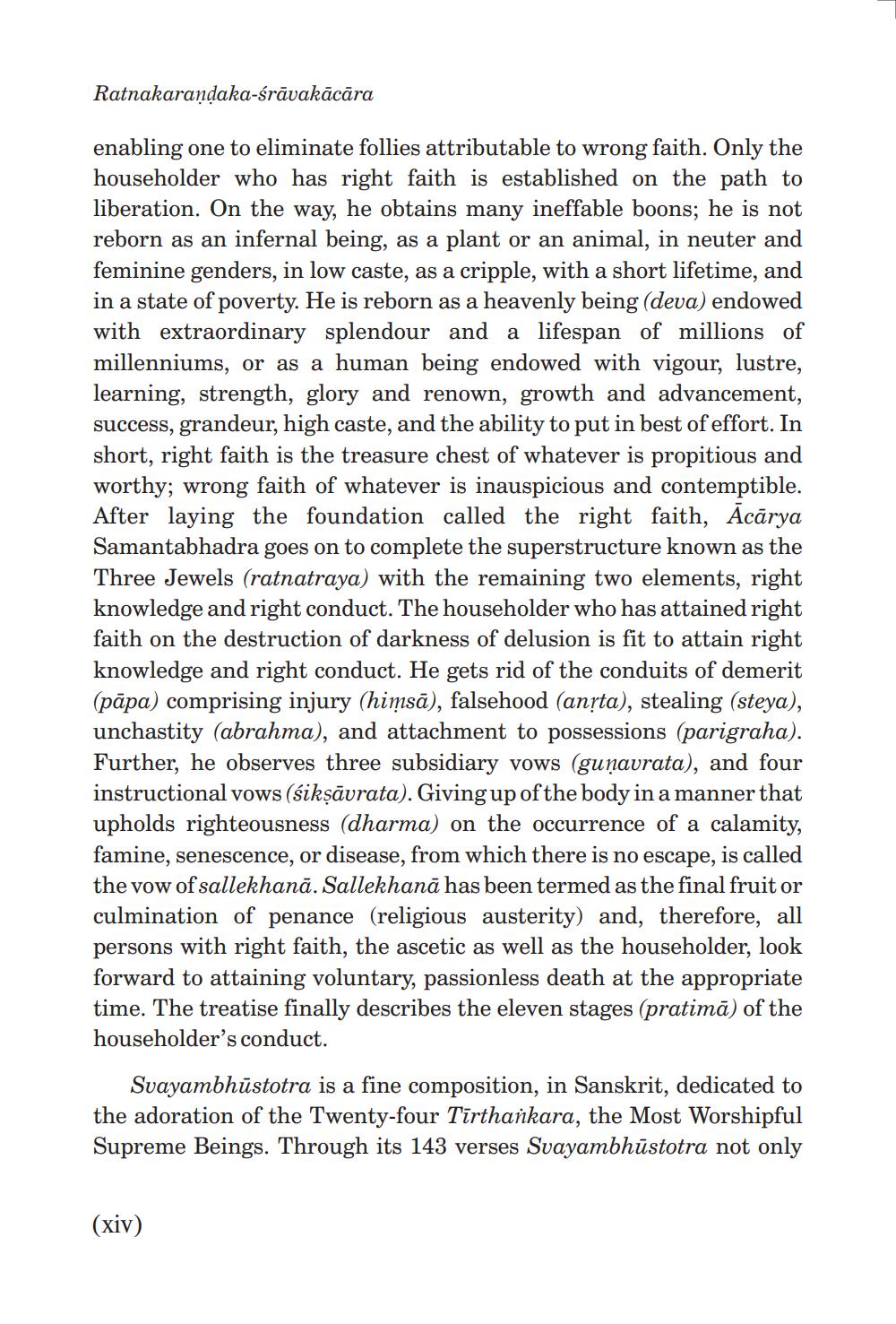________________
Ratnakarandaka-śrāvakācāra
enabling one to eliminate follies attributable to wrong faith. Only the householder who has right faith is established on the path to liberation. On the way, he obtains many ineffable boons; he is not reborn as an infernal being, as a plant or an animal, in neuter and feminine genders, in low caste, as a cripple, with a short lifetime, and in a state of poverty. He is reborn as a heavenly being (deva) endowed with extraordinary splendour and a lifespan of millions of millenniums, or as a human being endowed with vigour, lustre, learning, strength, glory and renown, growth and advancement, success, grandeur, high caste, and the ability to put in best of effort. In short, right faith is the treasure chest of whatever is propitious and worthy; wrong faith of whatever is inauspicious and contemptible. After laying the foundation called the right faith, Ācārya Samantabhadra goes on to complete the superstructure known as the Three Jewels (ratnatraya) with the remaining two elements, right knowledge and right conduct. The householder who has attained right faith on the destruction of darkness of delusion is fit to attain right knowledge and right conduct. He gets rid of the conduits of demerit (pāpa) comprising injury (hiņsā), falsehood (anyta), stealing (steya), unchastity (abrahma), and attachment to possessions (parigraha). Further, he observes three subsidiary vows (gunavrata), and four instructional vows (śikṣāvrata). Giving up of the body in a manner that upholds righteousness (dharma) on the occurrence of a calamity, famine, senescence, or disease, from which there is no escape, is called the vow of sallekhanā. Sallekhanā has been termed as the final fruit or culmination of penance (religious austerity) and, therefore, all persons with right faith, the ascetic as well as the householder, look forward to attaining voluntary, passionless death at the appropriate time. The treatise finally describes the eleven stages (pratimā) of the householder's conduct.
Svayambhūstotra is a fine composition, in Sanskrit, dedicated to the adoration of the Twenty-four Tīrthankara, the Most Worshipful Supreme Beings. Through its 143 verses Svayambhūstotra not only
(xiv)




